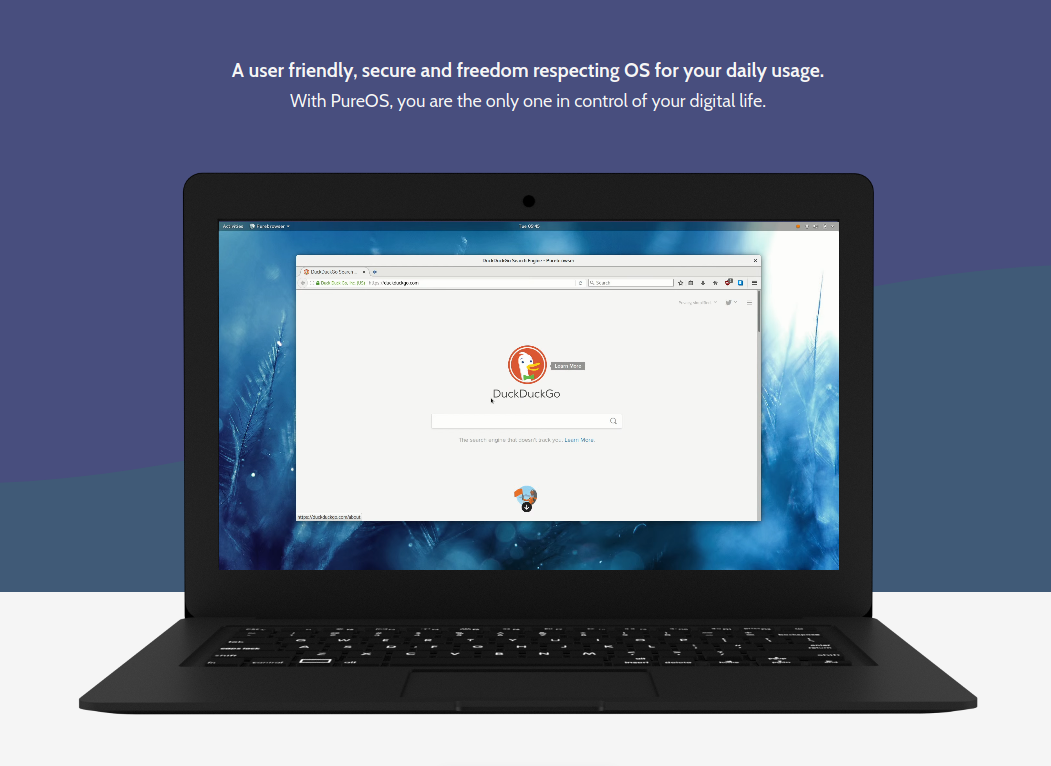2019 Year in Review: PureOS
Purism
Latest posts by Purism (see all)
- A Quarter Century After Cyberselfish, Big Tech Proves Borsook Right - December 20, 2025
- PureOS Crimson Development Report: November 2025 - December 15, 2025
- Purism Liberty Phone Exists vs. Delayed T1 Phone - December 10, 2025
The PureOS team are proud to have created a brand new stable release of PureOS and delivered it to lots of users in 2019, so much in fact we had to add download mirrors to keep up with the demand. If that wasn’t enough we also created a new rolling release and are very close to finishing reproducible builds. Read the rest of the PureOS team’s 2019 year in review to find out more and discover what we have planned for 2020!

Stable and Testing Releases
Our new stable release is called Amber and is designed to provide the security of coreboot with the stability of a well tested distro. This new version of PureOS retains its status as a Free Software Foundation “free distro” and we’ve added a sibling called Byzantium which is a rolling release.
We’ve improved our release cadence so that we can do in-depth testing with some regularity. Byzantium is now being updated directly from the mothership, Debian testing, for those who want the latest and greatest. We’ve been pleasantly surprised by the adoption of the two distros and I am looking forward to announce the availability of Byzantium ISO images early in the New Year. Some of you might have noticed that while it is possible to upgrade Amber to Byzantium (details in our forum) it’s a big change with lots of new packages. If you’re not feeling adventurous, no need to worry, we’re going to continue to update Amber throughout 2020 with Amber updates and security fixes.
Our new rolling release was made possible by the flexibility of the Laniakea tool which we’ve invested significant resources in. Purism proudly sponsors the project and is also contributing to its broader adoption in the community as a way of building out the ecosystem of Free Software itself. Laniakea holds the logic to create new images as well as update packages which has allowed us to implement continuous delivery. Lanikea has allowed us to use Debian binary packages without having to rebuild each one by hand. Without Laniakea there simply would be too much work for the team. To top it off Matthias Klumpp created a tool that clones the entire Debian build process and let’s you maintain a large Debian derivative with relatively little effort. It is currently powering the Librem 5 and x86 builds distributions.
Mirrors
The PureOS traffic has grown considerably this year and we set up mirrors so that it is more easily accessible. PureOS now has mirrors on the US West Coast, Europe, and its own original instance. We hope this will streamline your software updates.
Librem Software Stack
On many distros the software stack begins at the kernel but our Librem software stack starts at the BIOS level, specifically coreboot. This year we’ve supported the Pureboot team in packaging coreboot, flashrom, and the TPM updating code. These tools are now in the PureOS repos and have successfully been used to manipulate the TPM on the Librem 13 and 15 and allow our users to take ownership of that chip. As heads matures and is integrated into Pureboot we’ll have more ways to protect your computer.
Aside from packaging code to change TPM secrets and flashrom, we’ve also packaged some udev instructions that work with the Librem Key. We always try to push patches up to Debian first but sometimes our patches make it into our distro more quickly that upstream. As we continue to package things for PureOS that will likely remain the case.
Reproducible Builds
Our work on reproducible builds has progressed and we have reduced our diff down to roughly 3 Megabytes in a multi-gigabyte distro. Once we’re doing consistent builds of Byzantium we’re confident that we can close that gap and reproducibly build for PureOS and Pureboot. Coreboot is already reproducible and much of the code in our repos is also reproducible. Putting all that work together into a complete reproducible ISO is tantalizingly close.
PureOS in 2020
Next year we will be including a Quality Assurance tool (hint: OpenQA), continue our work on reproducible builds and the PureOS store. We are continuing our convergence work on PureOS to optimize the experience for all our current and future devices, whatever form they take.
Read more about PureOS on our blog and install PureOS on your computer or a virtual machine.
Discover the Librem 5
Purism believes building the Librem 5 is just one step on the road to launching a digital rights movement, where we—the-people stand up for our digital rights, where we place the control of your data and your family’s data back where it belongs: in your own hands.

Recent Posts
Related Content
- Landfall: A Case Study in Commercial Spyware
- Purism Approach vs. Google Model
- Spotify “Panama” Leak Is a Wake-Up Call for Digital Privacy
- Google Mishandling School Children’s Data
- Invisible Dependencies, Visible Damage: The Case for Supply Chain Hygiene


